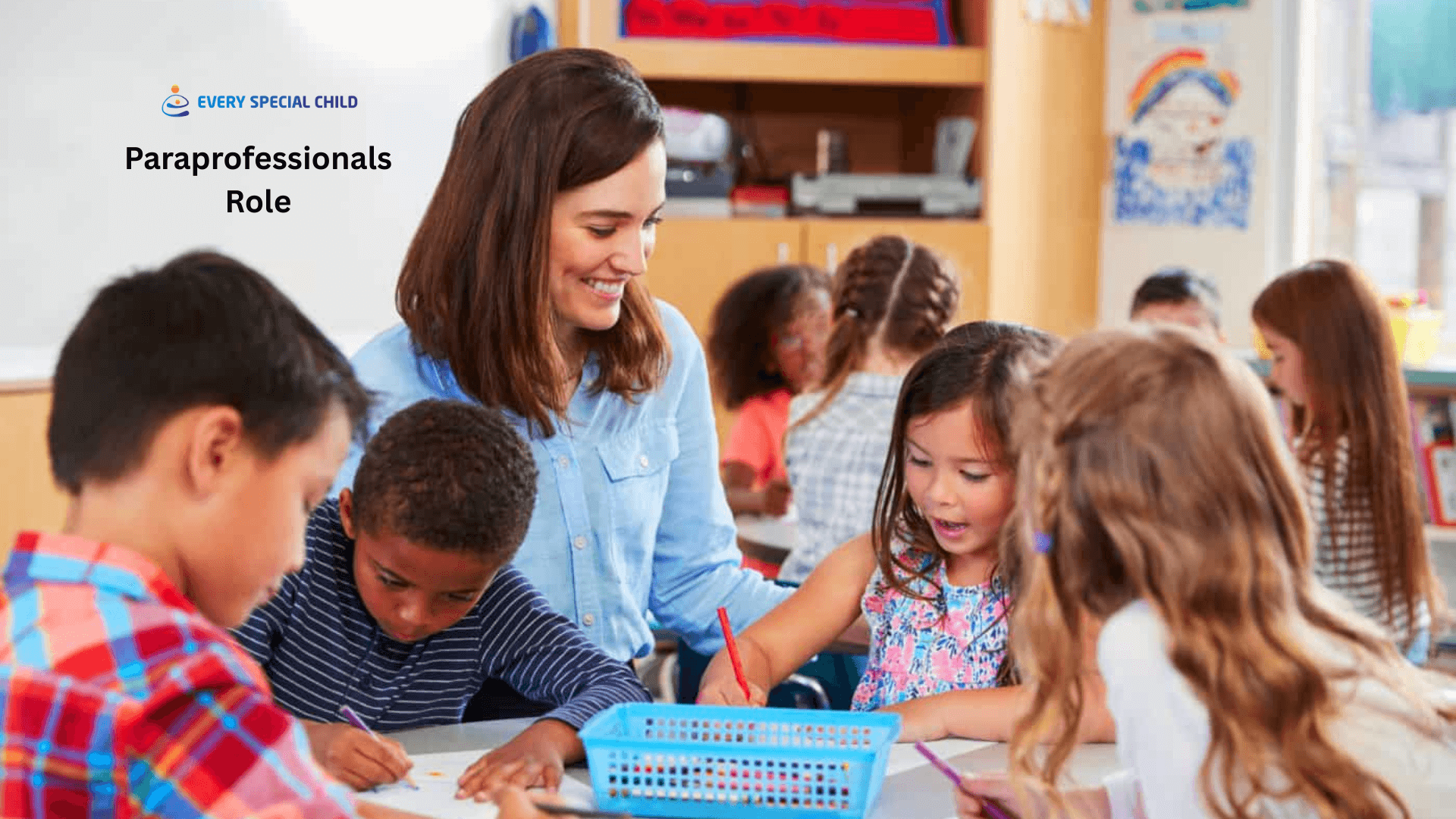Paraprofessionals Role in Special Education Classrooms
Paraprofessionals Role in Special Education Classrooms often requires more hands, hearts, and patience than traditional classrooms. That’s where paraprofessionals come in. They’re the quiet yet powerful force supporting both teachers and students, ensuring every child gets the individualized attention they need. Without paraprofessionals, special education would simply not function as effectively as it does today. Read More
Understanding Special Education Needs
Every student in special education is unique.
Students with Disabilities and Learning Differences
Some students may have physical disabilities, developmental delays, or behavioral challenges that make learning harder.
Individualized Education Programs (IEPs)
An IEP outlines each student’s goals and the support they need. Paraprofessionals play a vital role in carrying out those plans.
Why Extra Support Is Essential
Teachers cannot provide one-on-one attention to every student at all times. The role of paraprofessionals is to ensure that no child is left behind.
Core Paraprofessionals Role in Special Education Classrooms
Providing Individualized Student Support
Whether it’s reteaching a concept or guiding a student through daily tasks, the Paraprofessionals Role in Special Education Classrooms give tailored help.
Assisting with Classroom Instruction
They reinforce what the teacher introduces, making lessons more accessible.
Supporting Daily Life Skills and Independence
Learning is more than simply academics for many pupils; it’s also about developing their independence.
Academic Support Provided by Paraprofessionals
- One-on-One Tutoring: Breaking down lessons into smaller steps.
- Keeping Students on Task: Redirecting focus when attention drifts.
- Adapting Lessons: Modifying instructions with visuals, hands-on activities, or simplified explanations.
Behavioral Support Paraprofessionals Role in Special Education Classrooms
Implementing Behavior Intervention Plans (BIPs)
Paraprofessionals often follow structured behavior plans designed by specialists.
De-escalating Challenging Situations
Calm presence and de-escalation strategies prevent disruptions from escalating.
Encouraging Positive Behavior
Praise, rewards, and positive reinforcement help build confidence.
Physical and Personal Care Assistance
Some Paraprofessionals Role in Special Education Classrooms provides vital personal care.
- Assisting with wheelchairs, walkers, or mobility devices.
- Helping with feeding, toileting, or hygiene needs.
- Making sure every child feels safe and included.
Collaboration with Teachers and Specialists
Paraprofessionals Role in Special Education Classrooms are part of a larger team.
- Working with Teachers: Supporting lesson delivery and student monitoring.
- Communicating with Specialists: Following guidance from therapists to implement strategies.
- Supporting Parents: Sharing progress and helping families stay informed.
Essential Skills for Special Education Paraprofessionals
- Patience and Empathy: Meeting students where they are.
- Strong Communication Skills: Clear interaction with students, teachers, and parents.
- Adaptability: No two days in special education are ever the same.
Benefits of Paraprofessionals in Special Education
- Improved academic and behavioral outcomes.
- Stronger student confidence and independence.
- Reduced workload for teachers, allowing for better planning and teaching.
Challenges Faced by Paraprofessionals in Special Education
- High-Stress Situations: Managing Meltdowns and Crises.
- Physical and Emotional Demands: Some tasks are exhausting and deeply personal.
- Limited Recognition: Paraprofessionals are often overlooked, despite their significant contributions.
Training and Professional Development
Ongoing learning is key.
- Specialized training in disabilities, autism, or behavioral management.
- On-the-job mentoring from experienced staff.
- Certifications such as CPR, first aid, or paraprofessional assessments.
Tips for Success as a Paraprofessional in Special Education
- Build strong student connections—they’ll trust and respond better.
- Stay flexible and ready for the unexpected.
- Seek professional growth opportunities whenever possible.
FAQs
- What do paraprofessionals do in special education?
They support instruction, assist with behavior plans, and help with personal care needs.
- Do paraprofessionals exclusively work with students who have special needs?
Not always, but in special education classrooms, their focus is primarily on students with disabilities or learning challenges.
- What skills are important for a special education paraprofessional?
Strong communication, empathy, flexibility, and patience are crucial.
- Are paraprofessionals trained for special education?
Yes, most undergo specific training in disabilities, behavior management, and classroom support strategies.
- Why are paraprofessionals so important in special education?
They provide the individualized support students need, allowing teachers to focus on instruction and ensuring students don’t fall behind.
